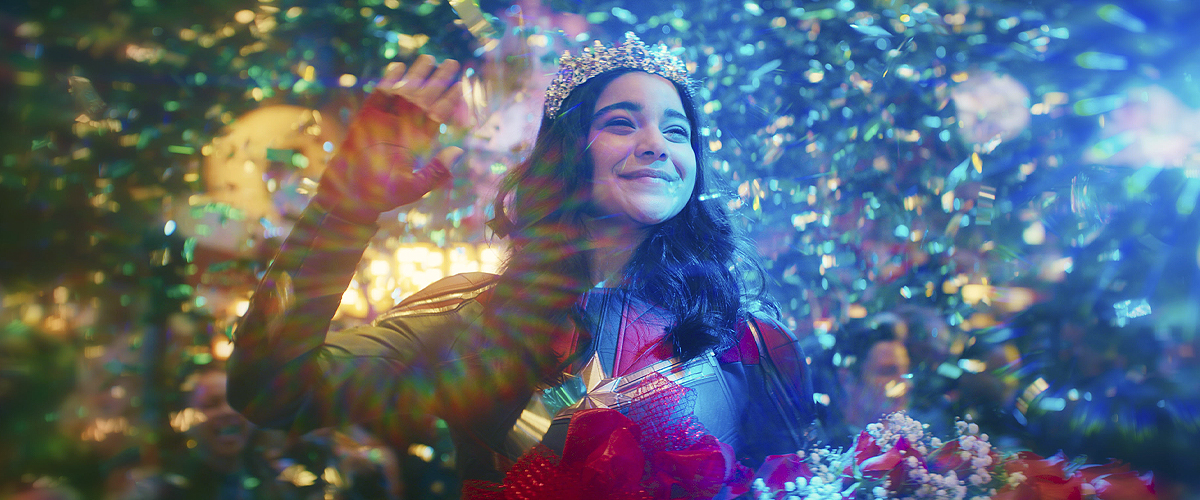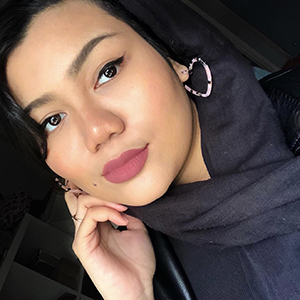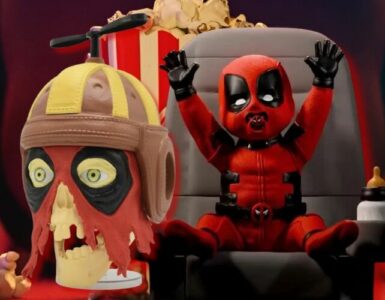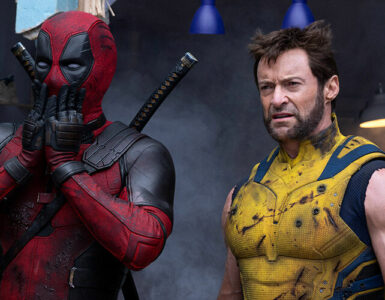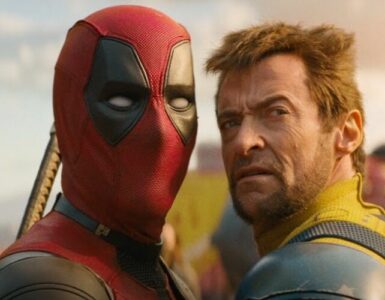Kamala Khan turns the key in the ignition, whispers “Bismillah” and takes a deep breath.
To anyone else, it might evoke memories of childhood fears, of saying a prayer before acting, or even be reminded of that one-word mention from Queen’s signature hit, Bohemian Rhapsody.
But as a Muslim, I laughed at the screen and immediately got reminded of all the times I used God’s name before I perform a task. And just like that, the realisation hit me that the use of the Arabic ‘Bismillah’, which translates to, ‘In the name of God, the merciful’, along with the many other Islamic references used in the first two episodes of the new Ms Marvel show, marks the first time the references are used in a natural and thoughtful manner, without harsh or judgemental intent.
Exactly the way it was intended to myself and the many millions of Muslims out there, along with everyone else who saw it depicted in a Marvel Studios Disney+ series meant for all ages.
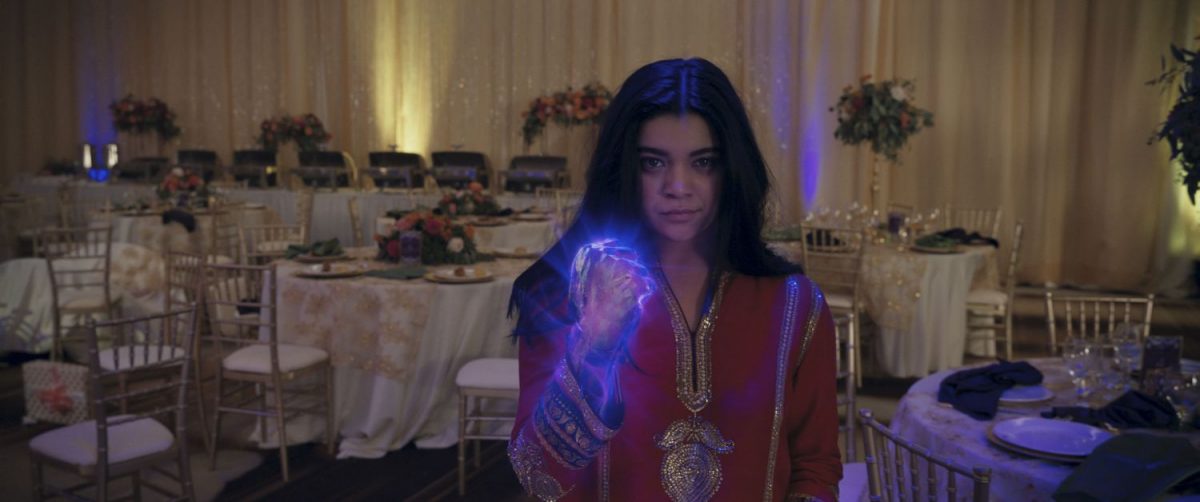
Ms Marvel premiered on 8 June 2022 and whilst I never read the comics, or even cared much at all for the character, I tuned in because at my very core I am a huge Marvel Studios fan and was curious to see just how right, and quite honestly, how wrong they would be, in representing the Muslim community.
As it turns out, the one that was wrong, was me.
As an avid consumer of media and now as a journalist reporting on the latest news and releases, I have spent a large amount of my time catching films and TV shows that shout or cry representation of a marginalised community. But usually, the idea of tokenism springs forward more often than not. There are many examples of representation, and levels of it to varying degrees of success and even if we were to just focus on Disney or even those from Marvel Studios, there have been several.
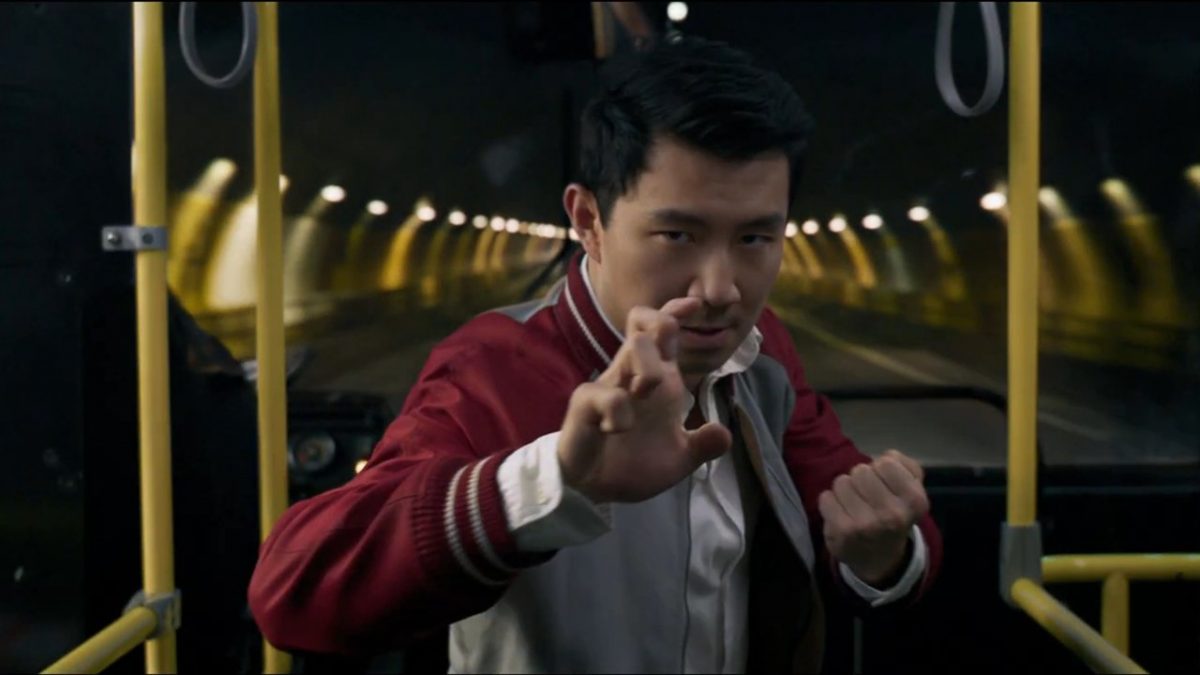
In recent years, Marvel debuted its first leading Asian superhero, played by Simu Liu in Shang-Chi and the Legend of the Ten Rings, and saw an Arab and Black interracial queer couple raise a little boy in their humble abode in the superhero ensemble Eternals. Along with this also came Lauren Ridloff’s Makkari, who debuted as Marvel Studios’ first hard-of-hearing superhero, and Kumail Nanjiani’s performance of a Bollywood dance number.
Whilst it was beautiful to see such diversity on screen, one can’t help but wonder what true and well-intentioned representation is? Shang-Chi was heavily applauded for its Asian representation but failed to acknowledge that the Asian identity exists beyond East Asian ethnicities. As a member of the LGBTQIA+ community, seeing Phastos kiss his husband was heartwarming but can a mere peck be considered representation when one of the movie’s major sub-plot was the everlasting love between a heterosexual couple, Sersi and Ikaris. We even got a very uncomfortable and awkward sex scene of the couple, on sand no less.
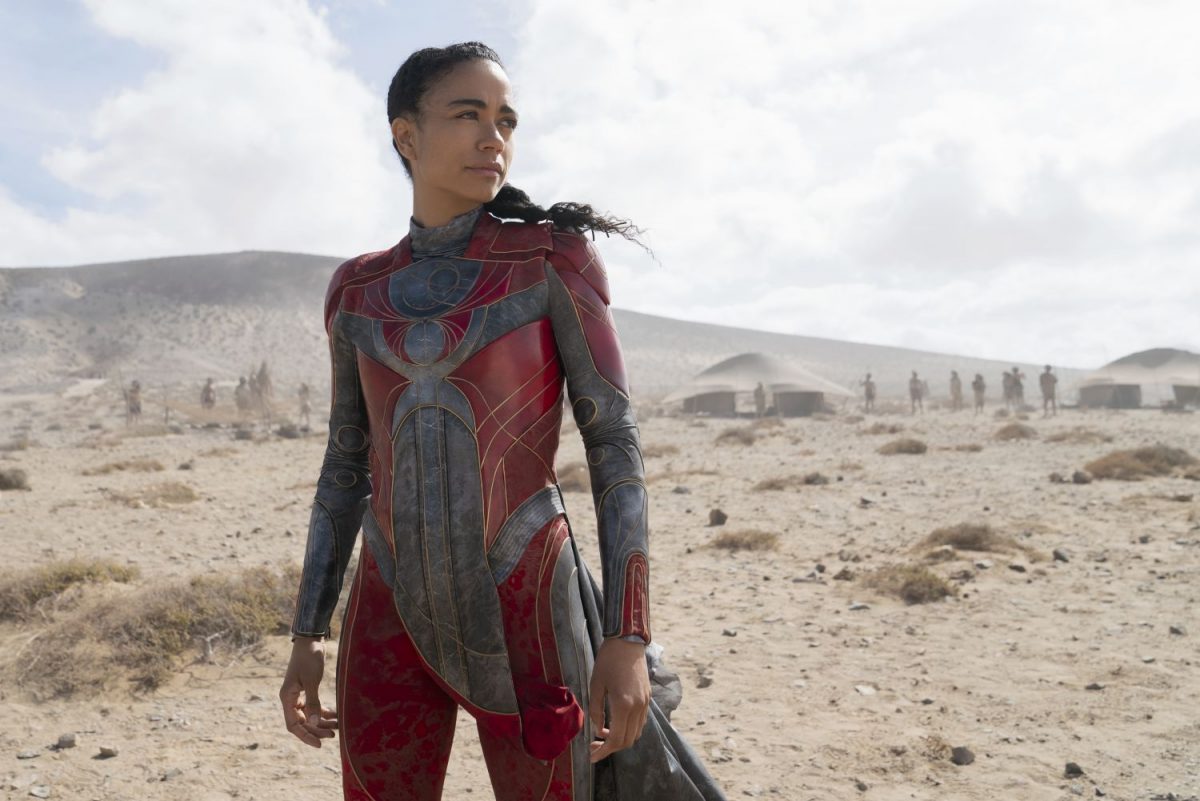
The basic definition of representation in media is simply how content, such as television, film and books, portray certain groups of individuals. It’s more than seeing a coloured person on screen, or a flag flying in the background, but at times representation can be replaced with tokenism, of a perfunctory or symbolic effort, and nothing more. That scene with Steve Rogers at the start of Avengers: Endgame acknowledging a same-sex relationship borders on it.
True representation should assist in reducing stereotypes of underrepresented groups, while strong and positive representation can help fight and break down stereotypes that can be detrimental to individuals and limiting to society. Meanwhile, negative portrayals produce the opposite effect as it affects the way others see a group of people, as well as how members of a community see themselves.
For decades, Muslims have either been excluded from or vilified in Hollywood. We’ve regularly been portrayed as terrorists or villains, especially after the events of 9/11. Even when Muslim characters are introduced, they’re almost always written to be held back by religious beliefs or their archaic parents. They find religion restrictive and often find themselves struggling with their faith. Female Muslim characters, especially those who don the hijab, often face an “empowering” moment in the story where they either find freedom in removing the hijab or inevitably fall in love with a White partner (read: saviour) who releases her from ‘the chains of Islam’.
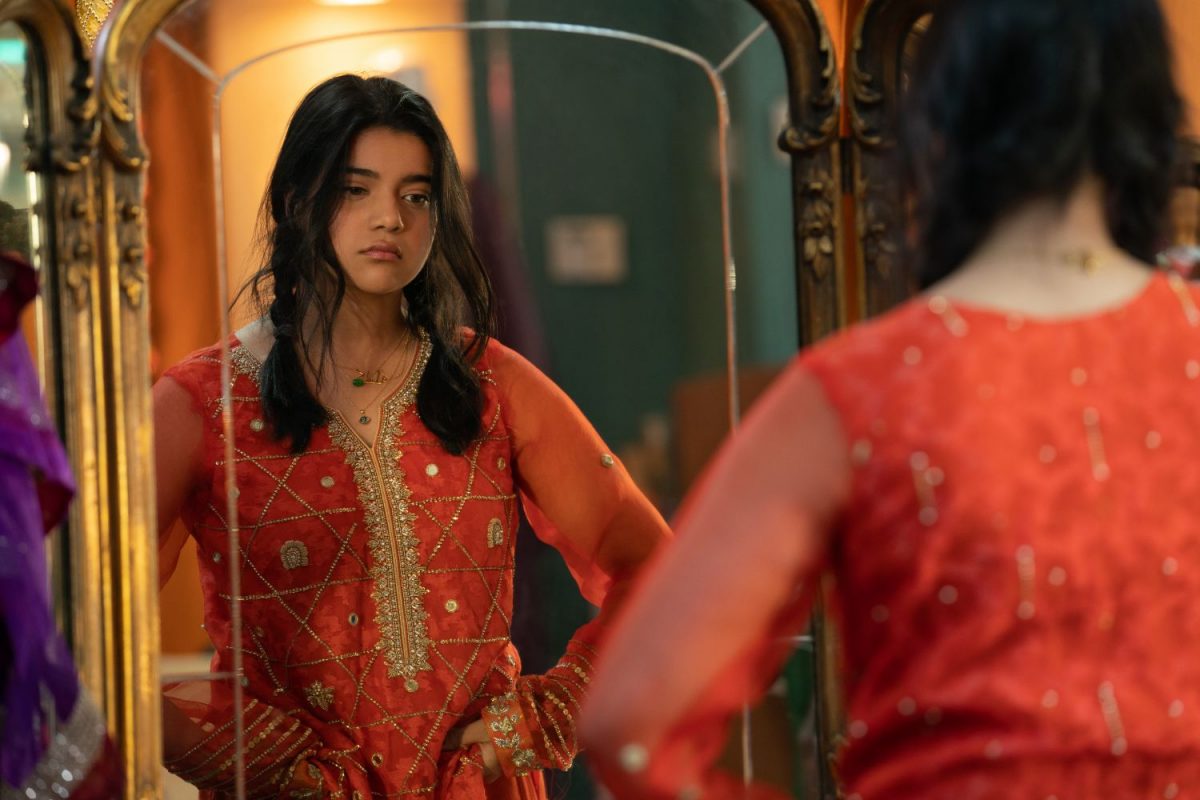
Nadia, from Netflix’s Elite is an example of such stereotypes and narratives that have been widely seen in media when a Muslim gets “represented”, but not effectively. In the Spanish drama, Nadia is an intelligent and focused student and during season one, she was seen wearing the hijab but doesn’t wear one at school because she was threatened with expulsion. Outside of school though, she still wears the hijab. Nadia was a character that many hijab-wearing Muslim women could empathise with and heavily rooted for in the show, but then came a scene in season two where she walks into a bar, looking undeniably fierce without her hijab, drinks alcohol and finally, has the courage to get with Guzman – the Chuck Bass of the show.
The message the writers were trying to put forward is clear: after removing her hijab, Nadia is free.
As a disclaimer, it is important to note that some Muslim women may be forced to wear the hijab. Those narratives should be discussed and portrayed, but it gets tiring that this is all the media ever portrays when it comes to the representation of Muslim women: submissive and oppressed.
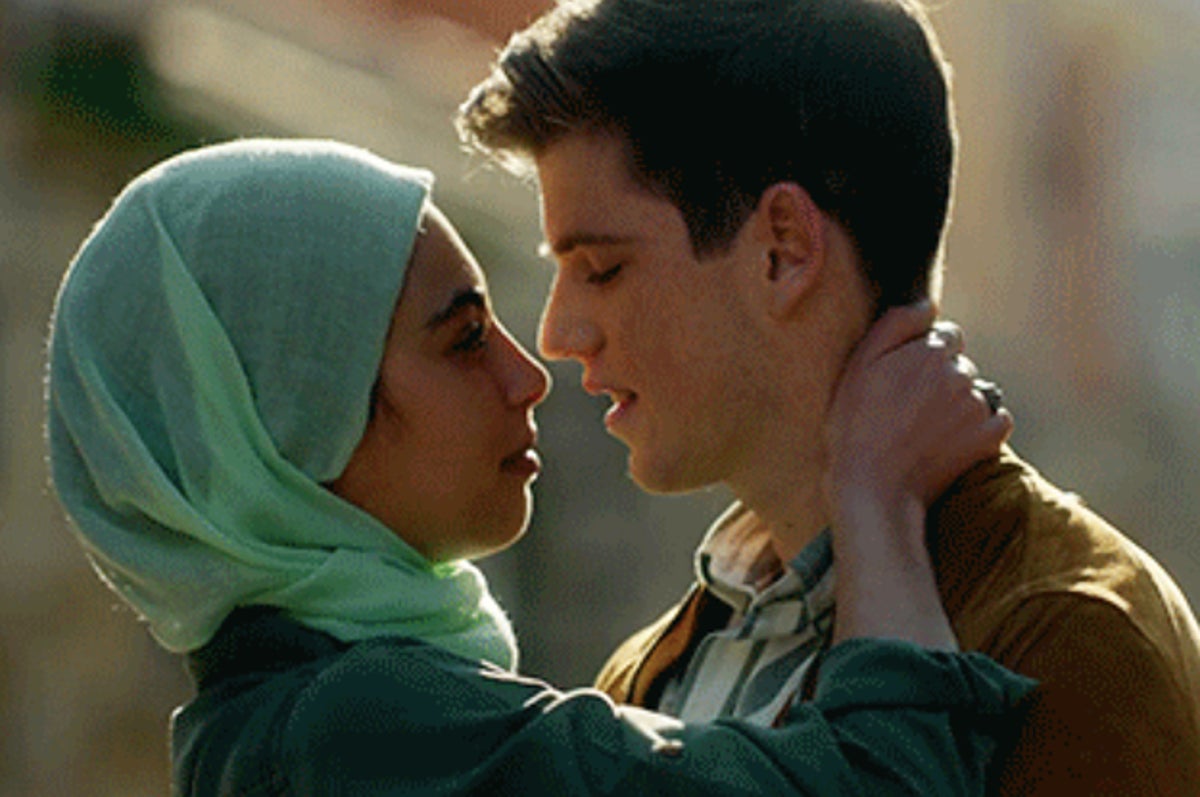
Very rarely do we see a Muslim character that embraces their faith and yet, still be able to participate in activities that their peers enjoy too. In the case of Elite, Nadia could have had a salacious storyline just like the other teens, but without the backdrop of oppression or emancipation at the cost of rejecting her Muslim identity, or being saved by a white boyfriend. Believe it or not, there are many Muslim women out here living their best lives. Not all Muslim women wear hijabs, and most Muslim women don’t base their identity and independence on a hijab either.
In this case, representation can be understood as seeing the protagonist go about their daily life, seeing life through their lens – all the good, and the bad – and still feel a sense of normalcy. Ms Marvel does just that for Muslims.
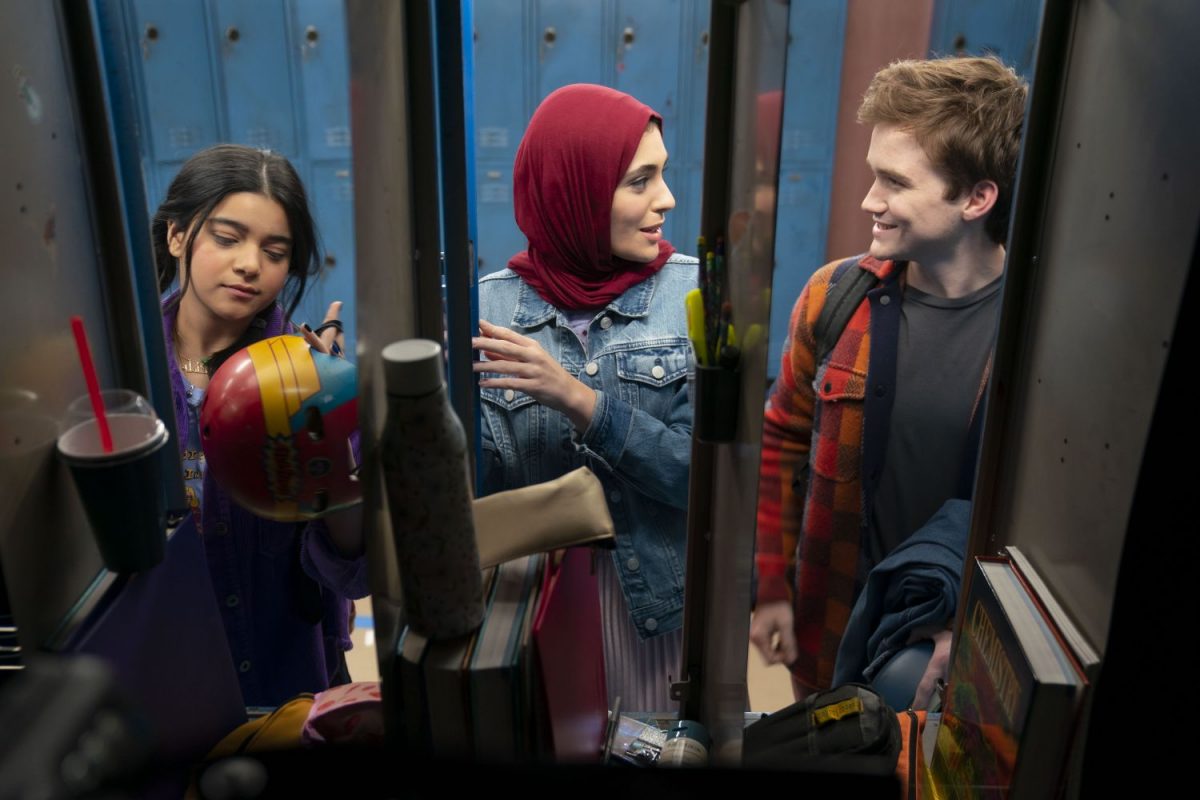
Ms Marvel delivers a tale that is deeply emotional and resonant, of a young Muslim girl looking for her own path, of pursuing her own interests while also managing the expectations of her parents. Kamala’s story so far has been a heart-warming coming-of-age journey that gives viewers a personal glimpse into a lesser-known (or incorrectly represented) culture and breaks many warped notions of the religion. Whilst there’s no knowing where and how the story will progress in the coming episodes, Ms Marvel has been unapologetically Muslim in its first two episodes, and I love it.
Ms Marvel illustrates the life of a young Muslim girl growing up in America through experiences that many Muslim teens would have experienced at some point in their life. Kamala goes to a party and asks if her drink is alcoholic because as a Muslim, she doesn’t drink. She wants to go to an event and her parents fear that it’ll be full of ‘haram’ (unlawful in Islam) activities. Her best friend is a White boy named Bruno and despite her parent’s acceptance of Bruno and his wonderful ideas and inventions, the two keep a healthy, respectful boundary.
At home, the walls are decorated with Islamic art. Her mother is a typical Muslim (and South Asian) mother who frowns on tight outfits and encourages modesty. We later on see Kamala tie a red scarf around her waist to keep her superhero costume modest. Her brother Aamir gives Salam, and in episode two, we see him cry out for Zamzam water when Kamala faints during dinner time. For context, Zamzam water is holy water and is termed as a great gift from God. Muslims often use Zamzam water to recover and heal diseases.
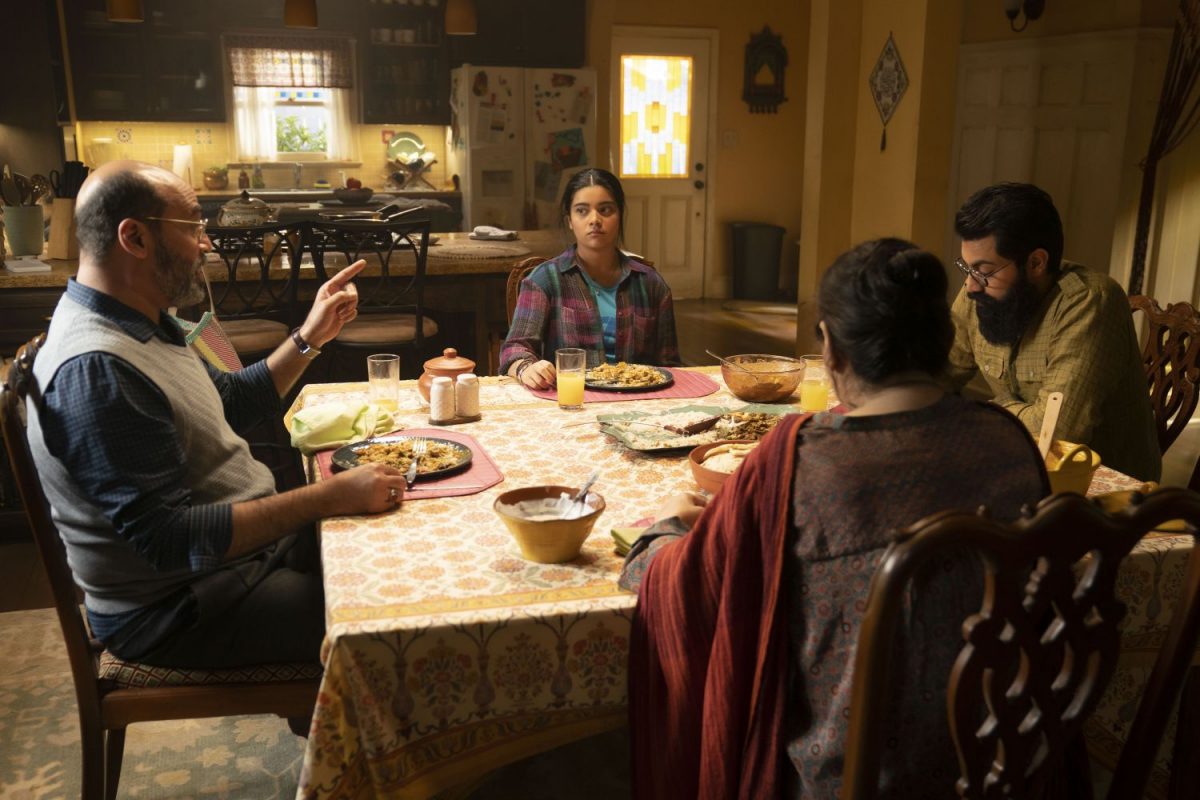
In the scene, Aamir even recites the Ayatul Kursi in the background too. Otherwise called ‘Throne Verse’, Ayatul Kursi is regarded as a powerful verse in the Quran often used to safeguard yourself and your loved ones, and to ask Allah to help calm you down and release your fears. Reciting Ayatul Kursi and drinking Zamzam water is almost every Muslim’s reaction to times of distress.
Outside of Kamala and the household, viewers get a peek into the Muslim community. Ms Marvel has prayer scenes and religious lectures, and if you’re wondering if a Mosque thief is a thing, yes it really is. Shoes do get stolen from mosques. Heck, sometimes slippers and sandals too. Eid celebrations are always overwhelmingly social, communal and lively, and navigating the various groups of people at such events, especially the gossip-loving aunties is just as complex and hilarious as the series depicts.
The Muslim representation in Ms Marvel is profoundly accurate and it does so in tidbits and jokes. It’s refreshing, vibrant and most importantly, honest. It does not ignore the fact that whilst Kamala is a young South Asian Muslim girl who has a solid Muslim community around her, she lives in America, a predominantly non-Muslim country. She attends a school that is majorly non-Muslim, and the line between her inner world and outer world is big and bold.
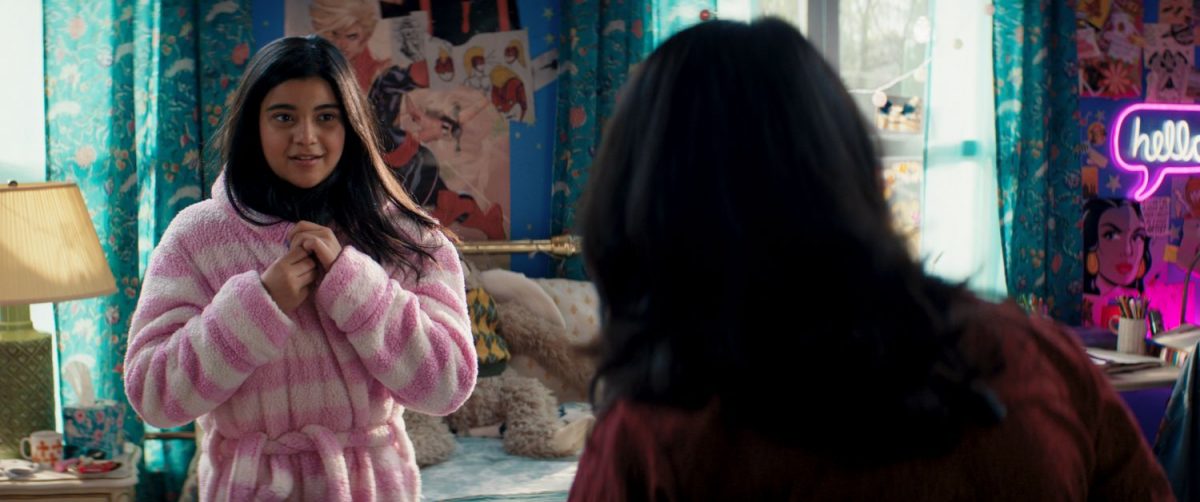
Kamala is constantly battling an internal conflict with what she can and cannot do. There’s a moment where the young teen is seen attempting to persuade her mother to let her go to the superhero-themed AvengersCon celebration event, only to be shut down because her mother believes it to be haram. When she asks her parents if their unwillingness to let her go is because they don’t trust her, her father gives a reassuring response: “We trust you, but not anyone else.”
Kamala rebels and attends AvengersCon anyways by sneaking out of the house with Bruno. This scenario of Kamala rebelling is not the typical caricature of a Muslim girl being oppressed by her faith – again, something we often see in media. Rather, it is a completely relatable and valid experience that so many young Muslim teens face. She comes home, gets caught, and instead of a screaming match, her disappointed mother reminds her of the values they tried to instil in the household.
Her faith and culture are a part of Kamala’s identity. These little moments that Muslim youths can relate to are weaved subtly and casually into various scenarios Kamala finds herself in and it normalises the experience that so many have at home with their own parents. This is what we would denote representation to be.
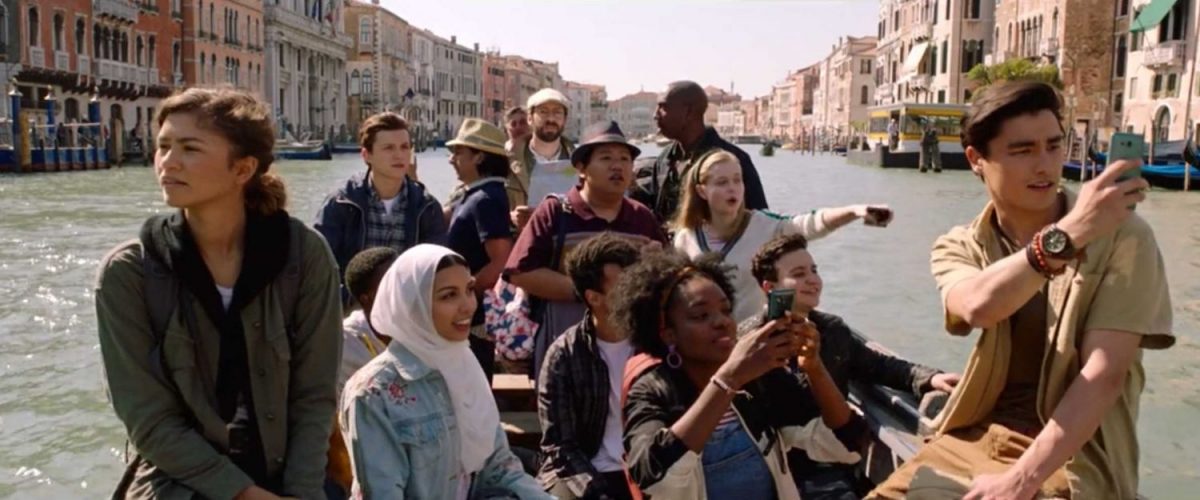
We’d like to raise that this isn’t Disney’s and Marvel Studios’ first attempt at Muslim representation though. For all the love and adoration we have for Ms Marvel, Marvel Studios has partaken in tokenism where they’ve sprinkled Muslim characters in scenes or movies to give the appearance of representation. An example is Zoha Rahman’s Spider-Man: Far From Home character.
Don’t remember her? It’s fine.
Often referred to as ‘Peter Parker’s friend’ in interviews even long after the release of Far From Home, the existence of Rahman’s Muslim character exploded on Twitter when star Tom Holland posted a video of her on his Instagram. The excitement quickly died down when the movie was released. Rahman’s character barely made an impact on the story. Her character wasn’t even properly introduced to viewers. All viewers got was the occasional appearances on screen where she is seen taking selfies on her European study-vacation trip.
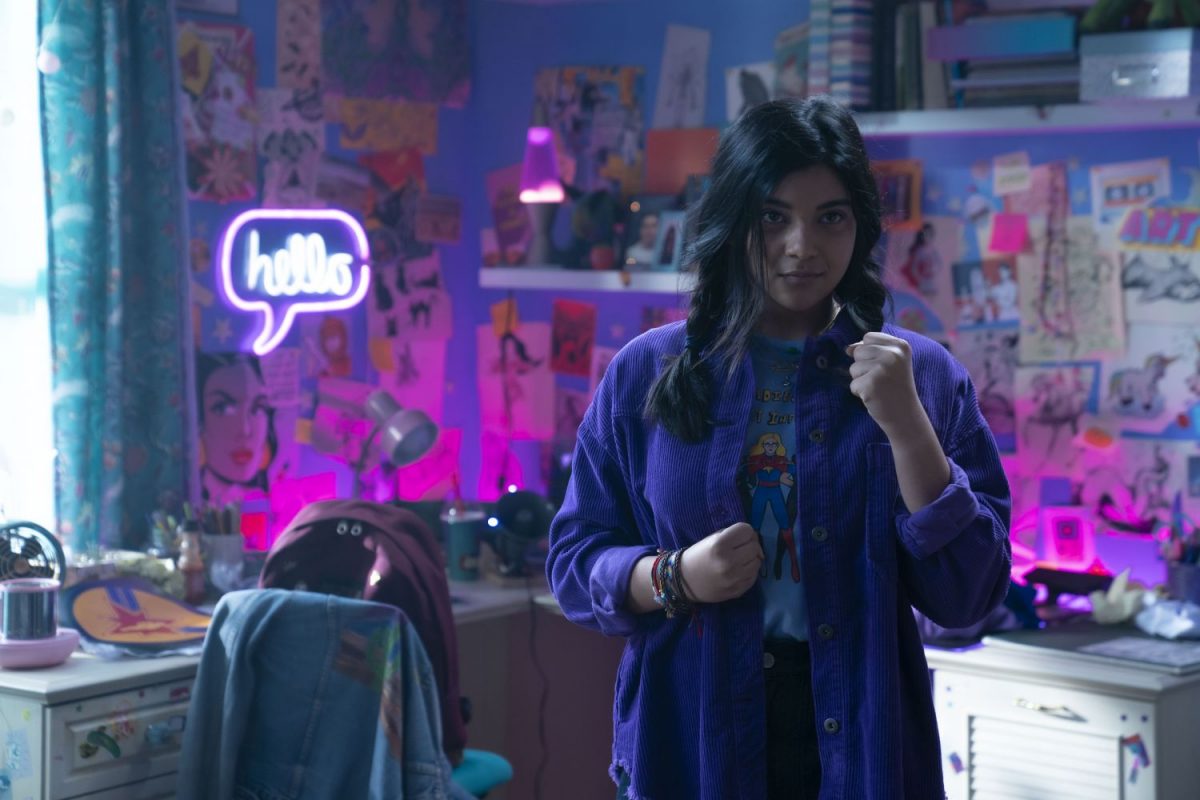
Compare this to Vellani’s Kamala and the differences are night and day, making it even clearer what is representation and what is simply tokenism. Of course, Kamala wouldn’t have been possible without the Muslim creators of the comics and the live-action series who at first, had very little hope that the Ms Marvel comics would even make it past a few issues, let alone have her own Disney+ series and in time, appear in The Marvels.
Representation aside, Ms Marvel is still a good superhero story that centres a young hero learning of her powers. The character has long been loved by comic book readers who see a part of themselves in the spunky, smart and superhero-obsessed teen who loves hanging out with her friends and writing fan fiction about her idols, the Avengers.
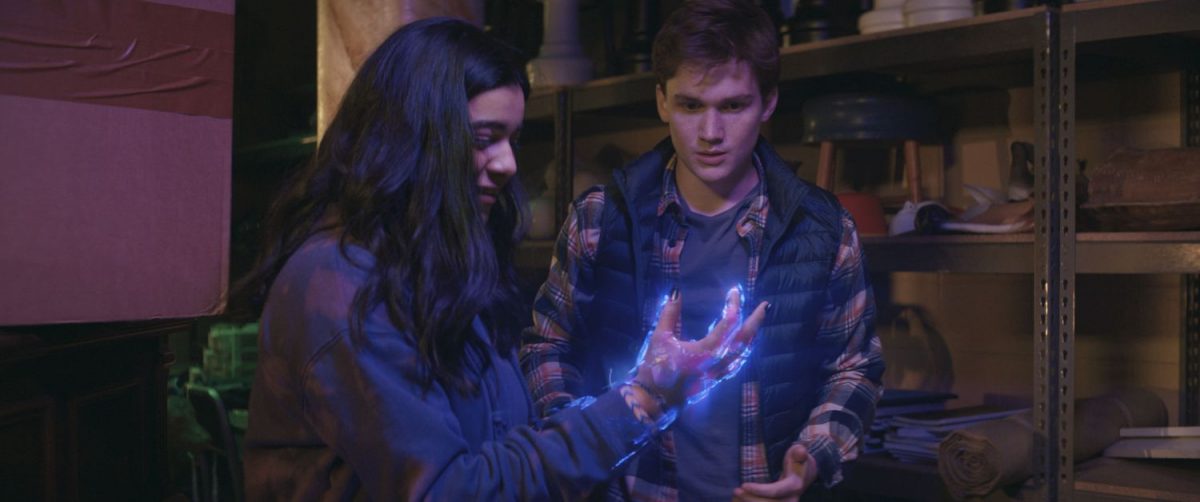
The series is for everyone who loves a good superhero story, but there’s no denying that it is custom-made for Muslim viewers to see themselves, their experiences and their stories on a global platform. And it does so beautifully, with great sensitivity.
Ms Marvel feels like a culmination of decades of pushback against misrepresentation of Muslims in mainstream media. It feels like a celebration of what’s possible when you get talented Muslim writers, creators and actors to build something true, authentic and enjoyable.
I may not have superpowers, but I share Kamala’s experiences. And so do my peers. Her story, our story, deserves to be heard. Ms Marvel is the representation I needed but thought I’d never have.
Ms Marvel is streaming on Disney+.

